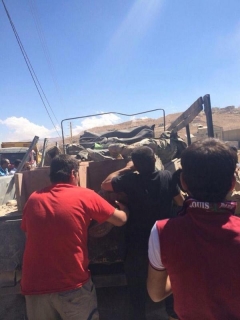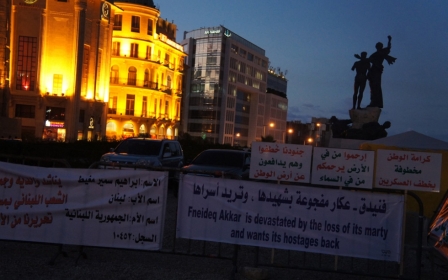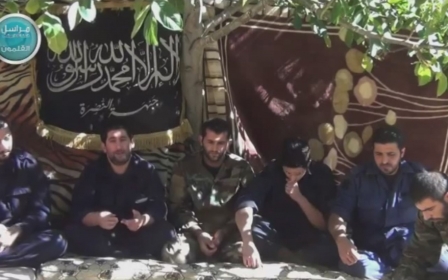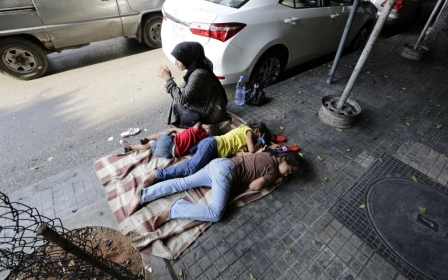New deadly blast rocks Lebanese border town of Arsal
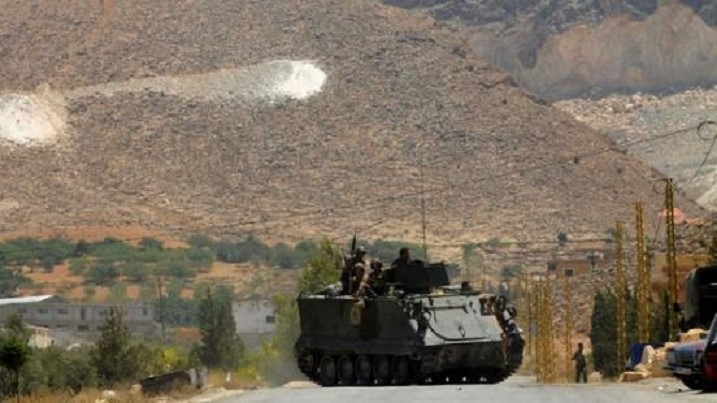
A roadside bomb targeting a Lebanese army patrol in the border town of Arsal has killed two soldiers, according to a military source who spoke to Anadolu Agency.
Three soldiers were also injured when the blast, caused by an improvised explosive device, ripped through the convoy in Wadi Hmeid in Arsal on Friday afternoon. The US embassy in Lebanon expressed its condolences for the deaths.
In a statement released after the explosion, the Lebanese army said they had placed a security ring around the town.
A Twitter page run by the Lebanese armed forces reported that the commander of the airborne forces was carrying out raids in Arsal after the bomb blast.
Arsal has been the site of frequent clashes in recent weeks, as fears grow over a spillover from the conflict in Syria.
On 7 August a ferocious five-day battle between Islamist militants and the Lebanese army in Arsal ended with an estimated 19 security forces killed and 30 captured by fighters from Islamic State and al-Nusra Front.
About 21 of the hostages remain in captivity, and a perceived lack of action on the part of Lebanese authorities to return the soldiers has caused uproar in Lebanon.
Relatives of the captive soldiers have blocked roads and burned car tyres in protest.
Nusra Front denied on Friday that they had demanded the release of its fighters who are being held in Syria in exchange for the release of the captive soldiers.
Sources in the organisation told Anadolu that their demands are not “impossible”, but did not elaborate.
In addition, 42,000 registered Syrian refugees living in the town now outnumber the 35,000 largely sympathetic Lebanese Sunni residents.
Fighting in and around the remote hill-top town is expected to intensify in the coming weeks.
Militants struggling for control of the Qalamoun mountain range are set to move down into Arsal, a lower-elevation site more sheltered from the coming cold weather.
New MEE newsletter: Jerusalem Dispatch
Sign up to get the latest insights and analysis on Israel-Palestine, alongside Turkey Unpacked and other MEE newsletters
Middle East Eye delivers independent and unrivalled coverage and analysis of the Middle East, North Africa and beyond. To learn more about republishing this content and the associated fees, please fill out this form. More about MEE can be found here.


